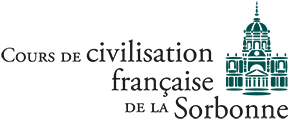Mistakes in vocabulary, conjugation or grammar
The first mistakes that come to mind when learning French concerns of course the knowledge of vocabulary. One of the first steps in the process of learning French is therefore to build up a vocabulary as wide as possible, knowing that the French language is very rich and full of nuances. Make sure to enrich your vocabulary every day and gradually express more complex ideas and thoughts. Pay attention to grammatical gender (which does not exist in English) and conjugation: French verbs agree in gender and number and obey several tenses:
Ex : Tu manges – You (singular) eat
Nous mangeons– We eat
Vous mangez – You (plural) eat
Always remember that the subject has to agree with the verb, the adjective agreeing in gender (masculine/feminine) and number (singular/plural) with the noun.
Not knowing your “faux-amis”
Cognate words in different languages might have the same origin and be related, having quite the same spelling, pronunciation, and meaning.
Many French words are thus related to English vocabulary, and therefore might look and sound the same to an English-speaking learner: 60% of English words have indeed some Latin roots.
These cognates words are sometimes “faux amis” (false friends) and can be very treacherous when they’re not properly identified. Words like “pain” (bread), “location” (rent) , “assister” (attend), “competition” (tournament) are among these numerous faux-amis which you can avoid only by using a dictionary when needed!
Avoid real life conversations in French
The best way to learn French is of course to communicate with French speakers. One of the most common mistakes is therefore to avoid these interactions out of shyness or fear of not having the “proper” level. It is by practicing as often as possible orally that your level in French will improve quickly. You will need to overcome your hesitations and test your mastery of the French language in daily situations. Don’t be afraid to challenge yourself, knowing that your accent is not a barrier – some people might even find it quite attractive!
Not reading enough
If the oral practice of French language is essential, writing is also one of the skills that you will need to acquire. Books devoted to learning French are of course an essential tool, but don’t hesitate to read novels, newspapers or magazines that deal with topics that interest you. This is a great way to develop your French language skills in writing while enjoying yourself!
Whatever you chose to read and/or study, you can be sure that reading in French will allow you to deepen your grammatical understanding, enrich your vocabulary while familiarizing yourself with French culture.








